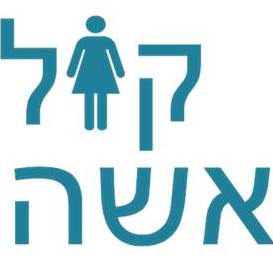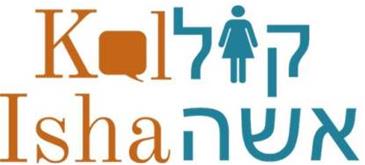
Banner

Date set for ‘women singing’ in Equality Court
ANT KATZ
Purely based on the chirp-fest that has seen over 50 user-comments representing in excess of 12 000 words being posted on this topic in less than a month, and the punch-ups that have ensued, this is clearly an emotive issue for SA Jewry.
To get a more complete understanding of the underlying issues and where the parties are at, read yesterday’s story – PROPOSAL UNACCEPTABLE SAYS CAPE BOARD – which clearly covers the religious concept of Kol Isha, when men are not supposed to listen to women singing – hear women are not acceptable in Orthodox Jewry.
Users can follow the story links below to get a better understanding of the potential implications on most religious denominations should religious law be tested against Constitutional law. However, with both parties seemingly intransigent, their respective see-you-in-court stances look set to see this being tested and played out in the public domain after all.
 The Judge President of the Western Cape High Court on Wednesday appointed a justice of the Western Cape High Court, sitting as the Equality Court, to hear the case of the three (complainant) parties against the Cape Jewish Board of Deputies, based on the banning of women singing at the Holocaust Memorial ceremony (which takes place today).
The Judge President of the Western Cape High Court on Wednesday appointed a justice of the Western Cape High Court, sitting as the Equality Court, to hear the case of the three (complainant) parties against the Cape Jewish Board of Deputies, based on the banning of women singing at the Holocaust Memorial ceremony (which takes place today).
The judge who has been appointed to hear the case is Justice Lee Bozalek. The case has been set down for two days: Monday August 22 and Tuesday August 23 and will likely become a reference case for years to come. It is also likely to cost a considerable amount in legal fees depending on the decision of the parties as to whether to let it go once the Equality Court has ruled.
The religious aspect, with a simple explanation of a complex issue which briefly explains the halachh and the reasons why exclusions were applied more previously, can be read in our initial story: BOARD SUED IN EQUALITY COURT OVER ‘KOL ISHA’.
PDF docs will be of interest to our users
For the interest and convenience of users, JR Online has posted on this website PDF documents of the Board’s 41-page reply to the original papers and the complainants’ (headed by Gilad Stern) subsequent 12-page reply to that.
- CLICK TO UPLOAD PDF: Cape Board’s 41-page answering affidavit of April 26
- CLICK TO UPLOAD PDF: Gerald Stern’s 12-page subsequent replying affidavit
These may be easily uploaded and then printed, filed or forwarded to friends or family who may be interested in the case.
Four years ago the matter resulted in a public demonstration and toyi-toyi by Jewish women outside Beyachad,Johannesburg Jewry’s communal headquarters (click to see video).
The Board is represented by attorney R Kudo with the firm Bernard Vukic Potash & Getz; while the complainants are represented by attorney D Olivier of the firm Fairbridge Wetheim Becker.
Catch up on the community voice
It has become a chirp-fest among users who have posted over 50 comments with over 12 000 words on this topic. Join the conversation – or simply enjoy what fellow users of this website have to say:
- 06 April:Board sued in Equality Court over ‘Kol Isha’– 9 user-comments
- 13 April: Lawsuit rabbi suspended from Board meetings– 24 user-comments
- 15 April:Court action: Margolis acted alone says SAUPJ– 5 user-comments
- 20 April:Video of Jewish women’s orgs protesting outside Beyachad
- 20 April:Halachah vs Constitution destined for Equality Court– 5 comments
- 21 April:Compromise on women singing looks likely– 4 user-comments
- 30 April:Proposal unacceptable, says Cape Board– 3 user-comments
- 03 May: User vs. user on subject of women singing – User-comments have already started
- 04 May: Proposal unacceptable says Cape Board – User-comments have already started





Beverley May
May 9, 2016 at 9:26 am
‘Dear Ant, this is especially interesting in light of the fact that we do have an example of secular law offering protection against religious-originated gender-based discrimination in South Africa. The Late Rabbi Harris and Rebbetzin Harris were instrumental in ensuring that a civil divorce requires the removal of impediments to religious remarriage – Divorce Act (70 of 1979) section 5A. Thus assisting Jewish women whose husbands refuse to grant a get. ‘